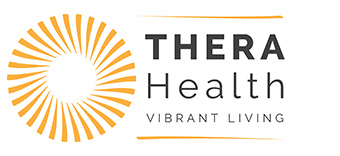In the last three months, the results of three major omega-3 studies have been published, marking the first important new interventional studies on cardiovascular outcomes to be published in several years.
These three trials are all large, well-designed, long-term studies whose primary outcome is the effect of long-chain omega-3s on the risk of major cardiovascular events. In addition, an updated Cochrane Review on Omega-3 during pregnancy has also been published, that concluded a daily omega-3 supplement should be taken during pregnancy.
ASCEND (A Study of Cardiovascular Events in Diabetes):
15,480 diabetics without any sign of existing cardiovascular disease were randomly assigned to receive a daily 1 g capsule of omega-3 fatty acids (840 mg of EPA+DHA) or a placebo.
Participants were followed for an average of 7.4 years, and as a primary outcome, the study found no difference between the two groups in the rate of major cardiovascular events, but there was a statistically significant 19% reduction in the risk of vascular death.
Diabetics are at a much higher risk of cardiovascular events than the general population, and this study is the first interventional trial to evaluate the effect of omega-3s on this high-risk population.
VITAL (Vitamin D and Omega-3 Trial):
25,871 healthy participants received either a daily 1g capsule of omega-3 fatty acids (840 mg of EPA+DHA) or a placebo.
This is the first study of the effects of long-chain omega-3s on cardiovascular risk ever conducted on a healthy population, and it provides the first insights on the effect of these nutrients in a low-risk population.
VITAL found that treatment reduced the risk of major coronary heart disease (CVD) events by about 8%, but this was not statistically significant. It also found that the risk of MI (myocardial infarction/heart attack) was reduced by 28%, which did reach statistical significance.
REDUCE-IT (Reduction of Cardiovascular Events with Icosapent Ethyl – Intervention Trial):
8,179 participants, all with either established cardiovascular disease or diabetes or other risk factors. All participants had high blood triglycerides, and they were undergoing successful statin therapy.
Participants were randomly assigned to receive 4g/day of EPA or placebo, and they were followed for a median of 4.9 years.
REDUCE-IT found that the treatment lowered the risk of major cardiovascular events by 25%, and that the risk of other cardiovascular outcomes (like stroke, or myocardial infarction) were reduced by a similar factor.
COCHRANE REVIEW (Omega 3 addition during pregnancy):
An updated review of 70 randomised controlled trials involving almost 20,000 women, reports that omega-3 supplementation during pregnancy reduces the risk of having a preterm baby (before 37 weeks) by 11% and an early preterm baby (before 34 weeks) by 42%. The authors also reported a 10% statistically significant reduced risk of low birthweight babies.
Premature birth is associated with a higher risk of health and developmental issues, and is the global-leading cause of death for children under five years old.
The authors suggest that pregnant women take an omega-3 supplement daily with at least 500 mg DHA.







Leave a Reply
Want to join the discussion?Feel free to contribute!